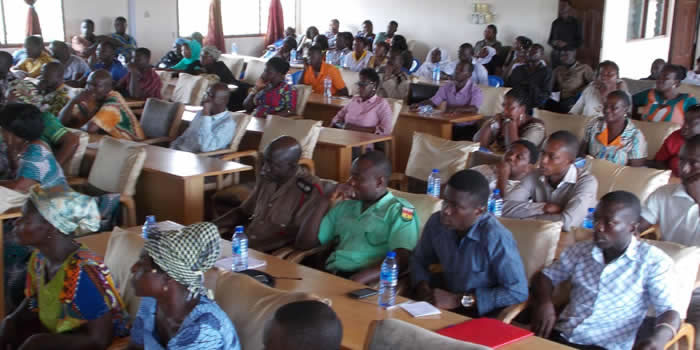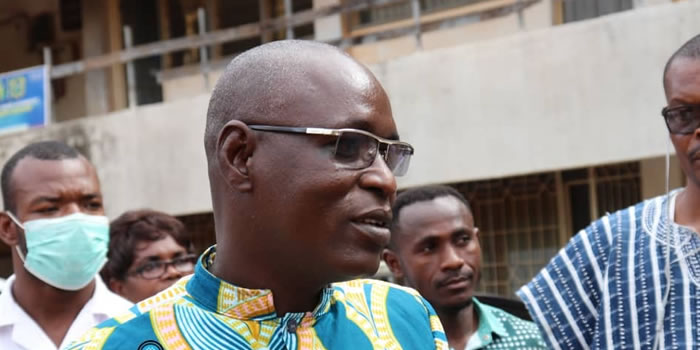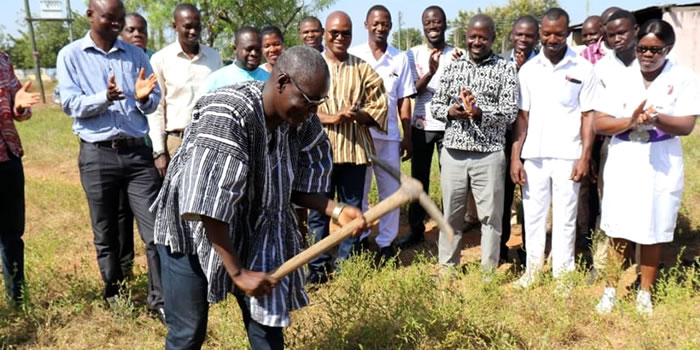

HEALTH
Lawra Assembly builds capacity to improve service delivery
The Lawra District Assembly in the Upper West Region, has organised a capacity building programme to improve knowledge and skills of staff for better and effective service delivery.

Date Created : 8/8/2016 12:00:00 AM : Story Author : Prosper K. Kuorsoh,
The two-day capacity building programme would also fill the performance gaps identified during the2012 Functional Organisation Assessment Tools exercise.
Participants were taken through procurement planning, local economic development plan preparation, participatory monitoring and evaluation through to mainstreaming cross-cutting issues like; gender, climate change and HIV and AIDS interventions into annual action plans.
Mr Paschal Baylon Dere, the District Chief Executive (DCE) noted that perennially the Auditor General’s Report is flooded with observations ranging from; misapplication and misappropriation of funds to over payment of contract sums.
He said it is surprising to note that most of the audit queries bordered on improper procurement practices.
He said indeed, auditors have observed time without number and there is a disconnect between procurement plans and executed projects, which often leads to the misapplication of funds on unplanned activities.
Similarly, I have observed that the poor publicity given to tender openings has foisted a perception that procurement processes are simply procedural, and are largely not fair, the DCE noted.
Mr Dere said he had informed management of the Assembly to give premium on the publicity of adverts, and the opening of tenders on various platforms including print and electronic media as well as the Assembly’s social media platforms.
This, he said would help the public to observe the procurement processes, and help disabuse the poor perception of public procurement in the public eye.
The DCE also expressed concern about how citizen’s enthusiasm on the activities of the various Town and Area Councils is waning.
He said people are beginning to become disillusioned about the role of the sub-structures of the Assembly in solving their developmental challenges.
He attributed the waning interest to the weak involvement of stakeholders at the grassroots in planning, monitoring and evaluation phases.
The perception has undoubtedly resulted in a disinterest among community members, in monitoring the execution of government projects as part of their civic responsibility, he said.
Mr Dere expressed the hope that the training would equip participants with workable skills that would be effective in rekindling the interest of the citizenry in the decentralization drive.
Mr Mohammed Asaah, Executive Director of Professional Alliance for Development Actions said the organisation is familiar with the challenges that most Assemblies face during the assessment because of its involvement in the process, hence it was well placed to facilitate the training process.
Dr Jonas Akudugu, a Senior Lecturer and Head of the Department of Community Development at the Wa campus of the University for Development Studies, who took the participants through the local economic development plan preparation, said it was important for every district to have a local economic identity.
GNA








 facebook
facebook
 X
X
 Youtube
Youtube
 instagram
instagram
 +233 593 831 280
+233 593 831 280 0800 430 430
0800 430 430 GPS: GE-231-4383
GPS: GE-231-4383 info@ghanadistricts.com
info@ghanadistricts.com Box GP1044, Accra, Ghana
Box GP1044, Accra, Ghana